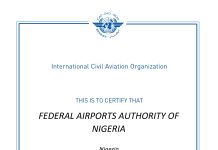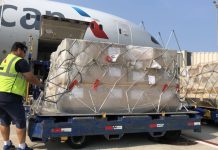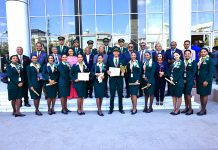The Federal Aviation Administration (FAA) and European Union Aviation Safety Agency (EASA) have pledged to work together to meet the challenges of a fast-changing and evolving aviation industry and the increasing speed of development of future technologies. Leaders from the FAA and EASA discussed the renewed commitment at the 2024 International Aviation Safety Conference.
“Our aim is to promote a cooperative and collective approach to aviation safety and modernisation,” said FAA Administrator Mike Whitaker. “As we look to the next decade, establishing a unified strategic direction based on information sharing and collaboration with our international partners will meet the needs of our global aviation system of the future.”
“The aviation industry is in the fastest period of change since commercial flights began. New technologies are urgently needed to make the industry more sustainable. Other innovations, for example in artificial intelligence, are emerging rapidly, and we have a generational change in the workforce,” said Florian Guillermet, Executive Director of EASA. “It is more important than ever that international aviation regulators work together to accompany the changes and ensure safety needs are always met.”
Discussions in plenary sessions and side meetings at the three-day conference around the theme “Building foundations: Preparing for the next decade together” reinforced that strong collaboration between regulators is essential to keep pace with this rapid evolution.
The FAA and EASA, committing to several key initiatives have noted that they will prioritize enhancing cooperative efforts at all working levels between their organizations. They aim to strengthen the focus and information exchange on safety oversight to promote a strong safety culture. By optimizing resources and leveraging the US-EU Aviation Safety Agreement, they will encourage their technical experts to work together and rely on one another, reducing duplication of effort with a risk-based approach.
The two agencies plan to deepen proactive collaboration on certification activities and operational frameworks for new and innovative technologies. They will expand and target cooperation on rulemaking efforts earlier in the development process. Additionally, they are dedicated to promoting aviation sustainability, particularly through activities related to sustainable aviation fuel development and deployment.
Their partnership will ensure that the goals of the Bilateral Enhancement Roadmap on certification activities are realized. They will reinforce cooperation on the analysis and mitigation of systemic safety risks, as well as on innovation and future aviation technologies. Furthermore, they will facilitate the exchange and sharing of information on topical areas and emerging risks facing aviation safety, including cybersecurity, conflict zones, and interference with global positioning systems/global navigation satellite systems (GPS/GNSS).
The FAA-EASA International Aviation Safety Conference brings together around 400 senior aviation professionals from regulators, manufacturers, airlines, and associations from all over the world. The event is held annually and is alternately hosted by the FAA and EASA. Next year’s conference will take place in Cologne on June 10-12, 2025.













